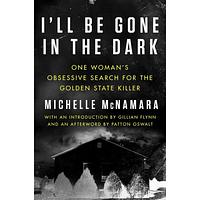You need to sign in or sign up before continuing.
Take a photo of a barcode or cover
challenging
dark
mysterious
tense
dnf. this guy just gives me the creeps - so despite the book being wonderful, i'm taking a break for now.
This book is fabulously researched &, in my view, avoids some of my least favorite true-crime tropes to tell a compelling story without exploiting the GSK's survivors and victims. The most thorough and sensitively written book within the genre I have encountered in some time.
I found myself really frustrated, though, when I made it to the chapter about familial DNA matching via commercial databases. Perhaps it would have taken shape differently if McNamara had lived to complete the chapter herself. Perhaps not, and I would be just as upset by authorial framing as I was by editorial framing. The book takes the tone that 23andMe and other DNA genealogy sites have been unnecessarily obstructionist in refusing to cooperate with law enforcement, and I think viewing that decision purely through the lens of one of the most sensational serial crime stories of the 20th century rather than in light of mass surveillance and mass incarceration -- two of the greatest ethical issues of the 21st century -- is horrifyingly myopic. I would have respected the chapter much more if it had engaged with the substance of those concerns then made a value judgment, even if it were one I disagree with on a policy level. I'm glad he's been caught, but I think it's dangerous to leave readers with the perception that free exchange of DNA between genealogy websites and police is an uncomplicated and unequivocally good thing. For plenty of people and communities at risk of being unjustly profiled and harassed, it is not.
I found myself really frustrated, though, when I made it to the chapter about familial DNA matching via commercial databases. Perhaps it would have taken shape differently if McNamara had lived to complete the chapter herself. Perhaps not, and I would be just as upset by authorial framing as I was by editorial framing. The book takes the tone that 23andMe and other DNA genealogy sites have been unnecessarily obstructionist in refusing to cooperate with law enforcement, and I think viewing that decision purely through the lens of one of the most sensational serial crime stories of the 20th century rather than in light of mass surveillance and mass incarceration -- two of the greatest ethical issues of the 21st century -- is horrifyingly myopic. I would have respected the chapter much more if it had engaged with the substance of those concerns then made a value judgment, even if it were one I disagree with on a policy level. I'm glad he's been caught, but I think it's dangerous to leave readers with the perception that free exchange of DNA between genealogy websites and police is an uncomplicated and unequivocally good thing. For plenty of people and communities at risk of being unjustly profiled and harassed, it is not.
This book was compulsively readable. I didn’t want to put it down (damn you children!), and in my pre-parent stage, I would have read this in one day. This was written in such an engaging way. It also scared the absolute shit out of me.
slow-paced
The thing is, this isn't a book for people who are interested in true crime, or who are used to maybe the Serial format of storytelling. McNamara knew this case inside and out and wanted it solved, so there's a lot of information about DNA testing, geomapping, criminal profiling, etc. It is beyond meticulous. I don't think it makes for a great audiobook (although I thought the narrator did a great job and Flynn and Oswalt's additions are a nice personal touch) because there's so much information and so many people that I felt a bit lost. For true crime lovers who really dig into the meat of the crime and the how to of the solving.
Such an exciting read. It sucks she passed right before they caught him -- with help from her book
Started reading this book knowing the man (GSK) had already been caught in April 2018. Nonetheless, Michelle’s way of writing and her description of the attacks made me want to keep on reading to see how in-depth she got. The amount of research she did was obvious and I enjoyed the attention to detail, specifically in the Visalia and Goleta/SB chapters. I got goosebumps during many chapters of this book, and kept crosschecking her theories regarding the identify of the GSK, to who he actually was (now that he’s been caught). Also interesting was the piece on familial DNA, ancestry.com/23&Me and her views on the possibility of being able to find the killers identity through a 2nd or 3rd cousin (how it was actually done). Great read.
The parts written by the author are so good, so interesting, so relatable - the parts written after she died are less so. I was still drawn in and loved this story of the hunt and the hunger that consumes you.

